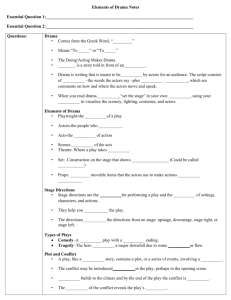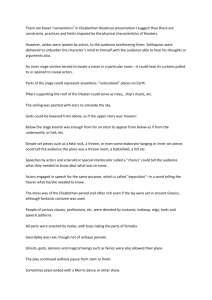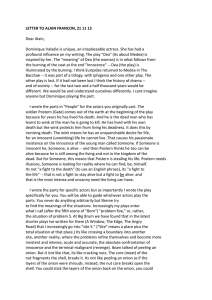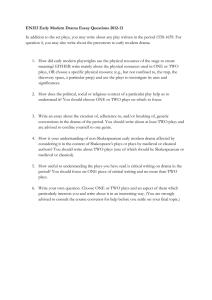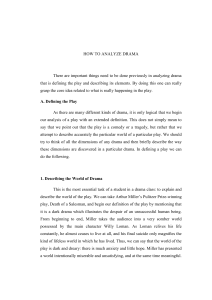AP Literature One Act Play Festival 250 Points
advertisement
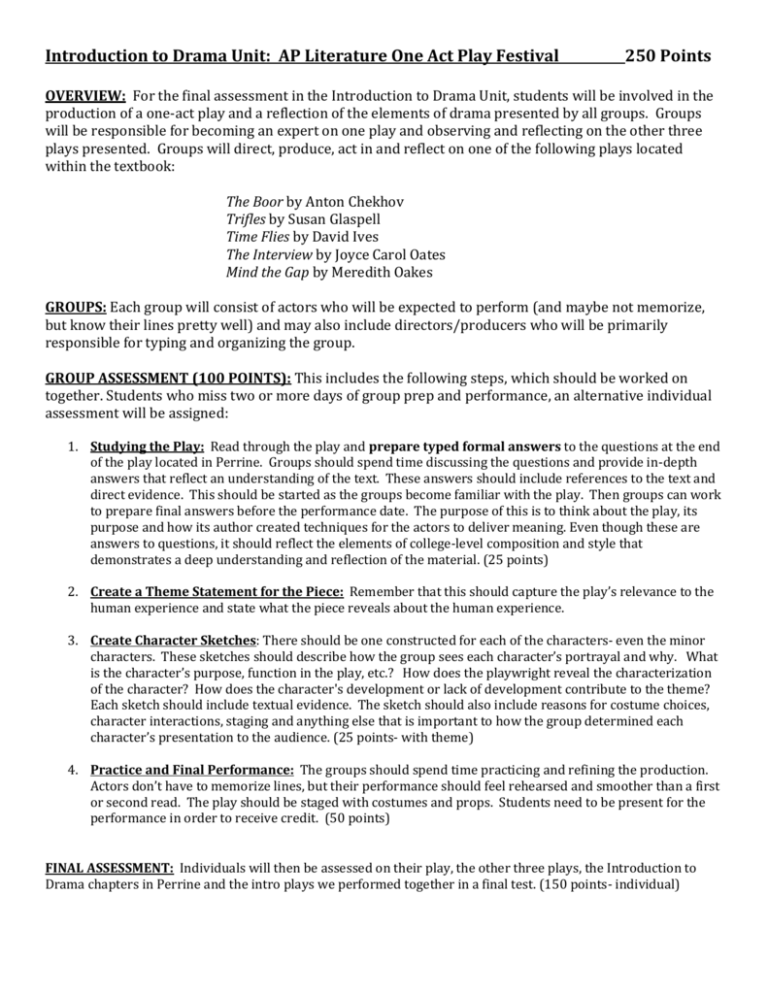
Introduction to Drama Unit: AP Literature One Act Play Festival 250 Points OVERVIEW: For the final assessment in the Introduction to Drama Unit, students will be involved in the production of a one-act play and a reflection of the elements of drama presented by all groups. Groups will be responsible for becoming an expert on one play and observing and reflecting on the other three plays presented. Groups will direct, produce, act in and reflect on one of the following plays located within the textbook: The Boor by Anton Chekhov Trifles by Susan Glaspell Time Flies by David Ives The Interview by Joyce Carol Oates Mind the Gap by Meredith Oakes GROUPS: Each group will consist of actors who will be expected to perform (and maybe not memorize, but know their lines pretty well) and may also include directors/producers who will be primarily responsible for typing and organizing the group. GROUP ASSESSMENT (100 POINTS): This includes the following steps, which should be worked on together. Students who miss two or more days of group prep and performance, an alternative individual assessment will be assigned: 1. Studying the Play: Read through the play and prepare typed formal answers to the questions at the end of the play located in Perrine. Groups should spend time discussing the questions and provide in-depth answers that reflect an understanding of the text. These answers should include references to the text and direct evidence. This should be started as the groups become familiar with the play. Then groups can work to prepare final answers before the performance date. The purpose of this is to think about the play, its purpose and how its author created techniques for the actors to deliver meaning. Even though these are answers to questions, it should reflect the elements of college-level composition and style that demonstrates a deep understanding and reflection of the material. (25 points) 2. Create a Theme Statement for the Piece: Remember that this should capture the play’s relevance to the human experience and state what the piece reveals about the human experience. 3. Create Character Sketches: There should be one constructed for each of the characters- even the minor characters. These sketches should describe how the group sees each character’s portrayal and why. What is the character’s purpose, function in the play, etc.? How does the playwright reveal the characterization of the character? How does the character's development or lack of development contribute to the theme? Each sketch should include textual evidence. The sketch should also include reasons for costume choices, character interactions, staging and anything else that is important to how the group determined each character’s presentation to the audience. (25 points- with theme) 4. Practice and Final Performance: The groups should spend time practicing and refining the production. Actors don’t have to memorize lines, but their performance should feel rehearsed and smoother than a first or second read. The play should be staged with costumes and props. Students need to be present for the performance in order to receive credit. (50 points) FINAL ASSESSMENT: Individuals will then be assessed on their play, the other three plays, the Introduction to Drama chapters in Perrine and the intro plays we performed together in a final test. (150 points- individual)


